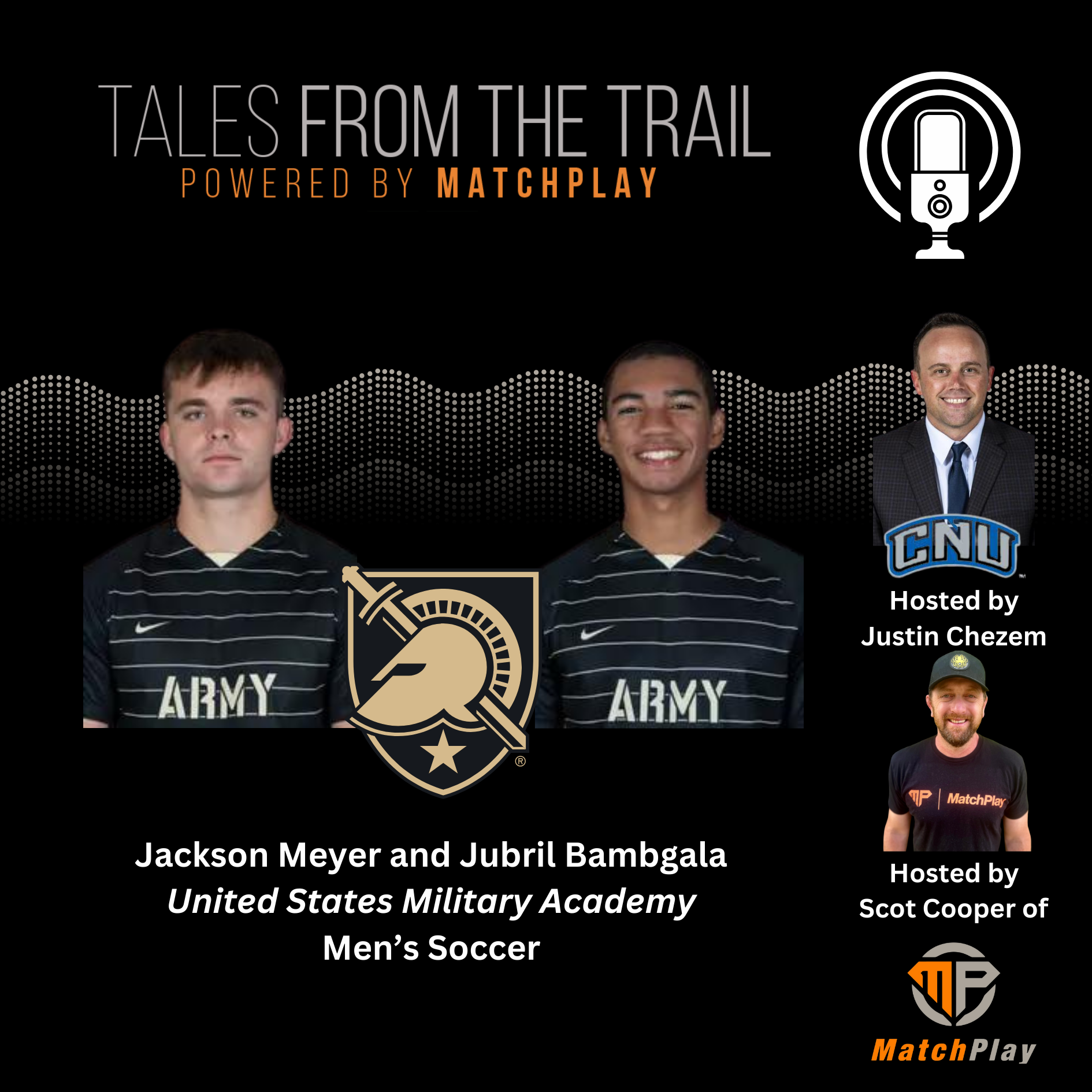102. US Military Academy Men's Soccer Cadet Student Athletes
- Author
- Scot Cooper
- Published
- Tue 27 Feb 2024
- Episode Link
- https://rss.com/podcasts/tales-from-the-trail-1/1362260
In this episode, Justin Chezem, head coach of Christopher Newport University men’s soccer, and I are privileged to welcome Jackson Meyer and Jubril Bamgbala, Cadet Student-Athletes from the United States Military Academy at West Point.
Summary
In this conversation, two West Point soccer players, Jubril Bamgbala and Jackson Meyer, discuss their experiences at West Point and the transition from high school to college soccer. They talk about their expectations versus reality, the leadership lessons they learned during the recruiting process, the preparation required before entering West Point, and their post-graduation plans and requirements. They also discuss the unique challenges and rewards of playing soccer at West Point. They talk about the unique challenges of balancing academics and athletics, the intensity of the Army-Navy rivalry, and the opportunities for off-season training. They also share insights into the academic year and breaks, the possibility of studying abroad, and the expectations and opportunities after graduation and commissioning. The conversation concludes with advice for high school students and a discussion about the potential for playing professional soccer.
Takeaways
The recruiting process for West Point involves meeting with senators, getting letters of recommendation, and understanding the type of school West Point is.
Expectations versus reality: West Point is designed to humble and develop individuals, and failure is seen as a building moment.
Leadership lessons from the recruiting process include the importance of respect, holding others to a standard, and caring for their well-being.
Preparing for West Point involves physical training, packing, and spending time with loved ones before reporting.
After graduation, West Point graduates are required to serve five years in the Army and have various opportunities for further education and career paths.
Transitioning from Beast (basic training) to soccer involves getting back into the flow of the game and receiving support from the team and staff.
Soccer at West Point is similar to other Division 1 schools, but the schedule and team dynamics create a unique and fulfilling experience. Balancing academics and athletics at a service academy requires discipline and time management skills.
The Army-Navy game is a highly anticipated and intense rivalry that holds great significance for both teams.
Off-season training is crucial for individual development and team improvement.
The academic year at a service academy includes breaks and holidays, but the schedule is rigorous.
Studying abroad is a possibility for service academy students, with popular destinations being Germany and Italy.
Summer training and internships provide opportunities for further development and exploration.
It is important to start developing good habits and leadership skills early on in high school.
After graduation and commissioning, service academy graduates have the opportunity to become platoon leaders in the Army.
Playing professional soccer after graduation is possible, but the financial implications and opportunities vary.
06:37 Expectations vs Reality
18:19 Leadership Lessons from the Recruiting Process
20:46 Preparing for West Point
26:10 Post-Graduation Plans and Requirements
34:05 Transitioning from Beast to Soccer
37:16 Soccer at West Point
39:41 Balancing Academics and Athletics
42:01 The Intensity of the Army-Navy Rivalry
44:06 Off-Season Training
46:36 The Academic Year and Breaks
51:15 Summer Training and Internships
53:22 Advice for High School Students
56:49 Life After Graduation and Commissioning
58:46 Opportunities in the Big Army
59:12 Playing Professional Soccer
01:01:24 Closing Remarks
